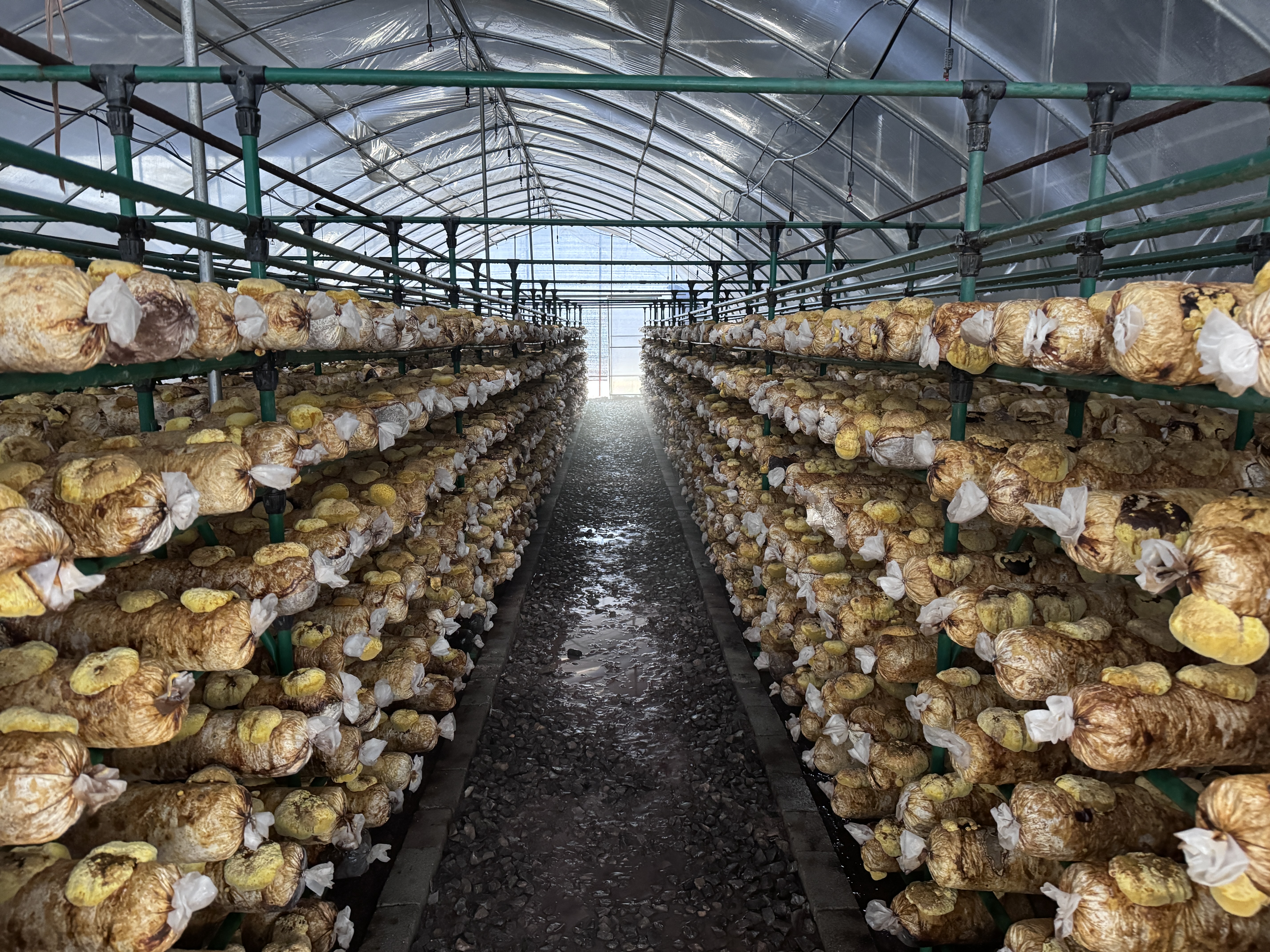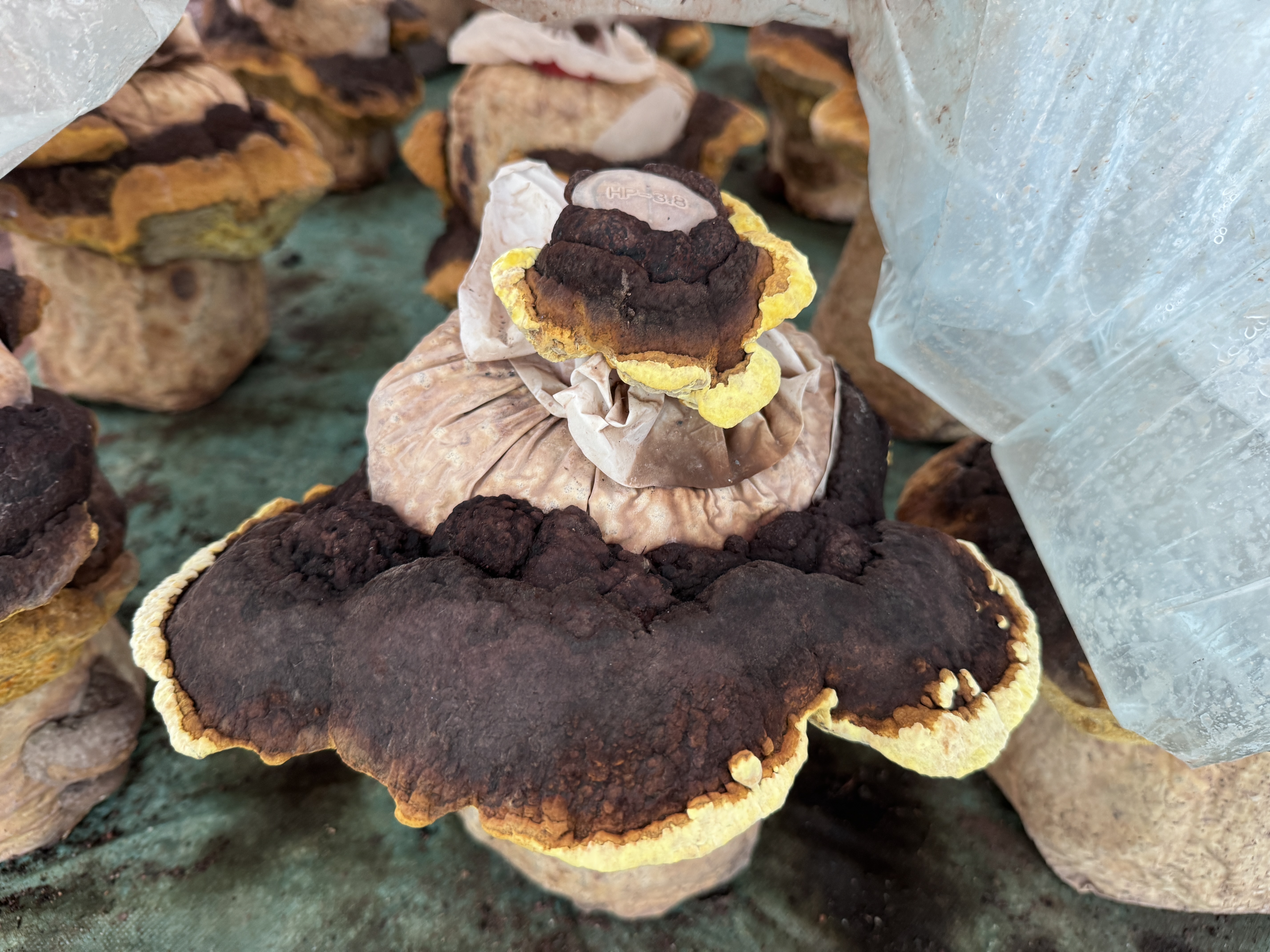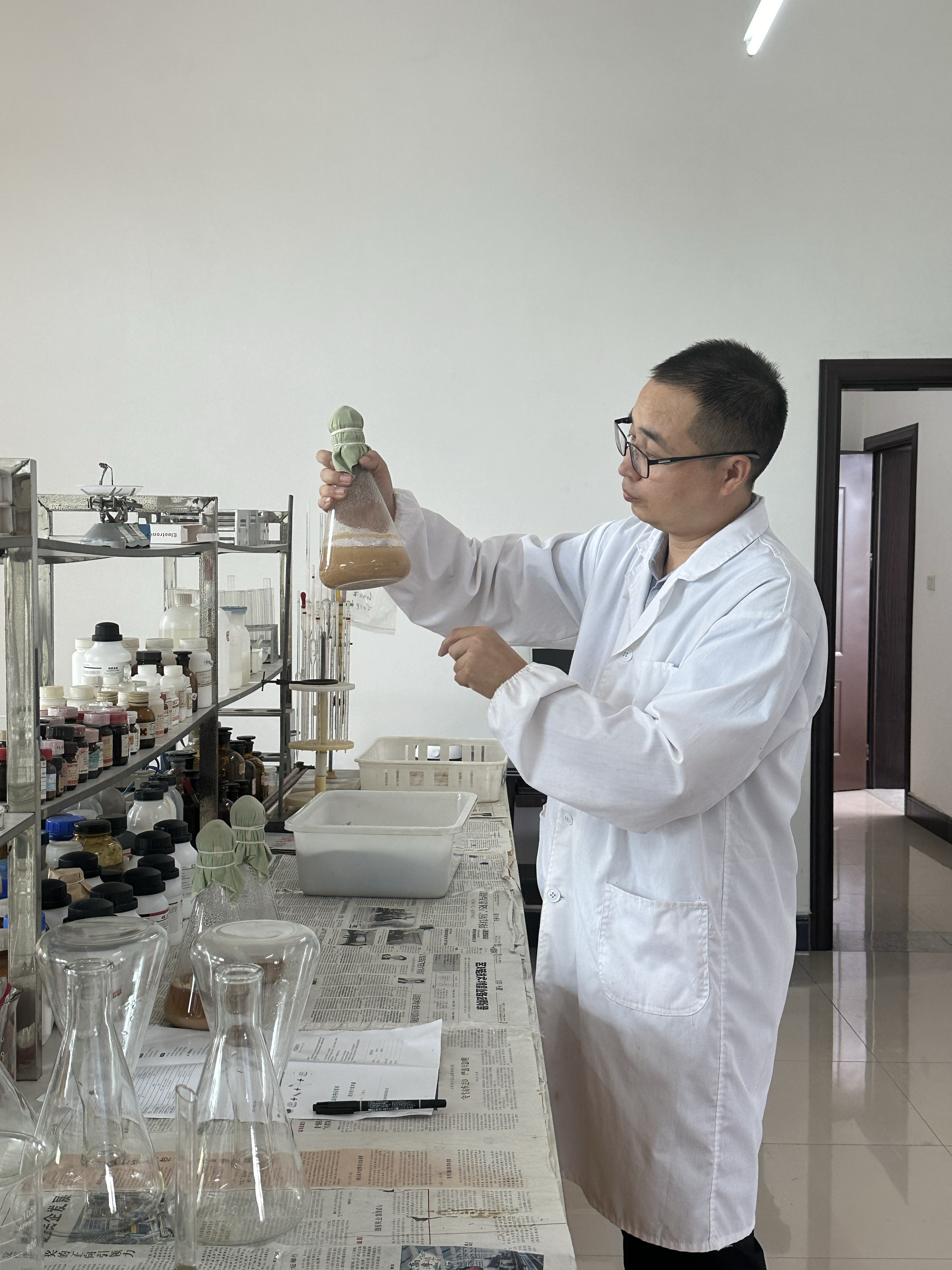Edible mushroom industry thrives in Yuan’an
2024-09-21 21:09:59
Journalist: Zeng Xuebin, Zhou Chongyu
Translator and Editor: Tan Maolin
On September 17, workers at the Sanghuang cultivation base in Majiapin Village, Yuan'an County,harvested and loaded Sanghuang mushrooms from approximately 60,000 bags cultivated in 18 greenhouses.

Sanghuang is a medicinal fungus found primarily on mulberry trees, boasting over 2,000 years of medicinal history in China. Known as "forest gold" for its high medicinal value, a kilogram sells for 2,000 yuan (US $283), with prices doubling during peak seasons.

Yuan'an County, dubbed the "Hometown of Shiitake Mushrooms," has restructured its edible mushroom industry to focus on rare varieties like Sanghuang. The county's cultivation scale has reached 300,000 bags, supported by a steady market for mushroom bags and processed products like Sanghuang tea and wine.
Beginning in 1986, Yuan'an developed shiitake mushrooms, leveraging its abundant forest resources, ultimately peaking at 142 million bags and nearly 60,000 tons of total edible mushroom production.
"As the shiitake mushroom market becomes increasingly saturated, Yuan'an's edible mushroom industry urgently needs to explore new pathways," said Li Mingliang, chief agronomist at the Yuan'an Agricultural and Rural Bureau.
Fan Shihe, chairman of Hubei Shanwazi Food Corporation, noted that the price of dried shiitake mushrooms has remained unchanged since the 1990s, highlighting the challenges in the edible mushroom industry.
Yuan'an's dense population of mulberry trees offers a unique advantage for developing the Sanghuang industry, though cultivation remains challenging. Yang Cuizhen, a technician at Senyuan Cooperative’s Sanghuang planting base,explained, "Sanghuang has strict growth environment requirements. It needs ample oxygen and light along with significant organic and inorganic matter while requiring relatively high moisture levels."

In April 2020, a cultivated wild strain produced fruiting bodies during a trial at Senyuan Company’s Sanghuang breeding laboratory, marking a new milestone for artificial Sanghuang cultivation in Yuan'an.
In 2022, Senyuan Company partnered with the Shanghai Academy of Agricultural Sciences to successfully breed local strains suitable for cultivation, including "Leizu No. 2" and "Leizu No. 3."
"Now we have both liquid and solid Sanghuang strain technologies; the former grow faster while the latter are easier to preserve," said Jiao Haitao, deputy general manager and head of the technical center at Senyuan Company.Recently, Yuan'an completed Hubei Province's first quality standard for medicinal materials derived from Sanghuang in collaboration with Three Gorges University. This development indicates that Sanghuang may soon be recognized as a medicinal material rather than just an agricultural product.
Yuan'an's Sanghuang industry is rapidly growing. Mushroom bags and various processed products, such as Sanghuang tea and wine are being distributed nationwide. The industry chain now integrates strain breeding, artificial cultivation, product research and development, and comprehensive sales.
Discarded mushroom substrates are reused in fertilizer factories, and plastic bags can be recycled into regenerated plastics, Yang explained. There are two fertilizer factories recycling mushroom substrates and nine companies recycling waste plastics in Yuan'an County to promote green circular development in the edible mushroom industry.
In addition to Sanghuang mushrooms, Yuan'an County is increasing investment in technology for rare edible fungi by introducing new varieties and developing new techniques. The county has successfully trialed and promoted rare species, including morels and red-tipped bamboo fungus.
Translator and Editor: Tan Maolin
On September 17, workers at the Sanghuang cultivation base in Majiapin Village, Yuan'an County,harvested and loaded Sanghuang mushrooms from approximately 60,000 bags cultivated in 18 greenhouses.

Sanghuang is a medicinal fungus found primarily on mulberry trees, boasting over 2,000 years of medicinal history in China. Known as "forest gold" for its high medicinal value, a kilogram sells for 2,000 yuan (US $283), with prices doubling during peak seasons.

Yuan'an County, dubbed the "Hometown of Shiitake Mushrooms," has restructured its edible mushroom industry to focus on rare varieties like Sanghuang. The county's cultivation scale has reached 300,000 bags, supported by a steady market for mushroom bags and processed products like Sanghuang tea and wine.
Beginning in 1986, Yuan'an developed shiitake mushrooms, leveraging its abundant forest resources, ultimately peaking at 142 million bags and nearly 60,000 tons of total edible mushroom production.
"As the shiitake mushroom market becomes increasingly saturated, Yuan'an's edible mushroom industry urgently needs to explore new pathways," said Li Mingliang, chief agronomist at the Yuan'an Agricultural and Rural Bureau.
Fan Shihe, chairman of Hubei Shanwazi Food Corporation, noted that the price of dried shiitake mushrooms has remained unchanged since the 1990s, highlighting the challenges in the edible mushroom industry.
Yuan'an's dense population of mulberry trees offers a unique advantage for developing the Sanghuang industry, though cultivation remains challenging. Yang Cuizhen, a technician at Senyuan Cooperative’s Sanghuang planting base,explained, "Sanghuang has strict growth environment requirements. It needs ample oxygen and light along with significant organic and inorganic matter while requiring relatively high moisture levels."

In April 2020, a cultivated wild strain produced fruiting bodies during a trial at Senyuan Company’s Sanghuang breeding laboratory, marking a new milestone for artificial Sanghuang cultivation in Yuan'an.
In 2022, Senyuan Company partnered with the Shanghai Academy of Agricultural Sciences to successfully breed local strains suitable for cultivation, including "Leizu No. 2" and "Leizu No. 3."
"Now we have both liquid and solid Sanghuang strain technologies; the former grow faster while the latter are easier to preserve," said Jiao Haitao, deputy general manager and head of the technical center at Senyuan Company.Recently, Yuan'an completed Hubei Province's first quality standard for medicinal materials derived from Sanghuang in collaboration with Three Gorges University. This development indicates that Sanghuang may soon be recognized as a medicinal material rather than just an agricultural product.
Yuan'an's Sanghuang industry is rapidly growing. Mushroom bags and various processed products, such as Sanghuang tea and wine are being distributed nationwide. The industry chain now integrates strain breeding, artificial cultivation, product research and development, and comprehensive sales.
Discarded mushroom substrates are reused in fertilizer factories, and plastic bags can be recycled into regenerated plastics, Yang explained. There are two fertilizer factories recycling mushroom substrates and nine companies recycling waste plastics in Yuan'an County to promote green circular development in the edible mushroom industry.
In addition to Sanghuang mushrooms, Yuan'an County is increasing investment in technology for rare edible fungi by introducing new varieties and developing new techniques. The county has successfully trialed and promoted rare species, including morels and red-tipped bamboo fungus.






